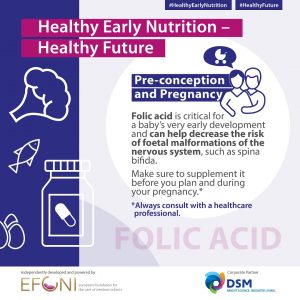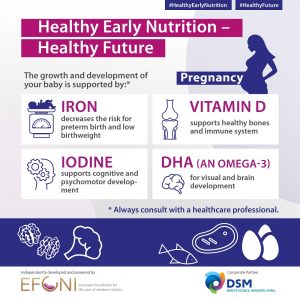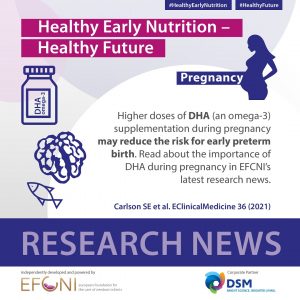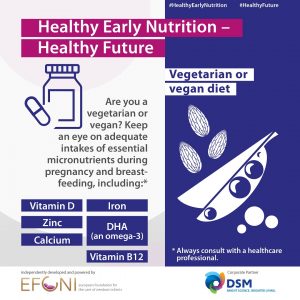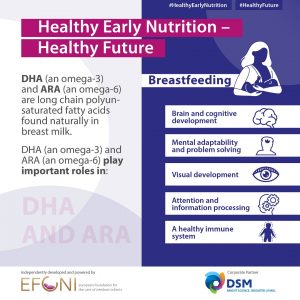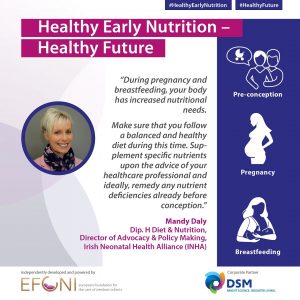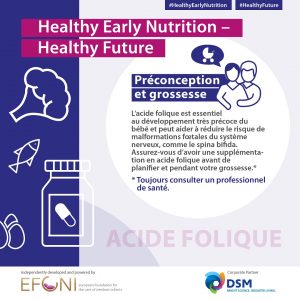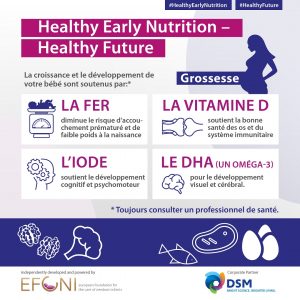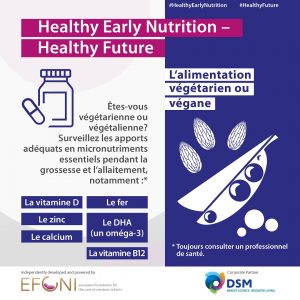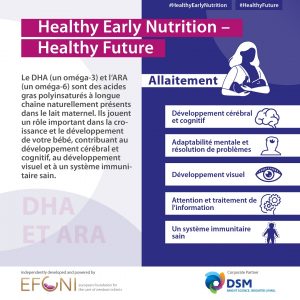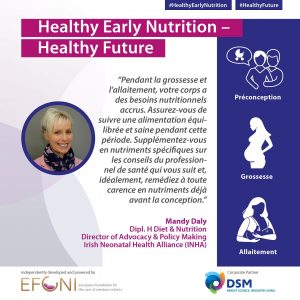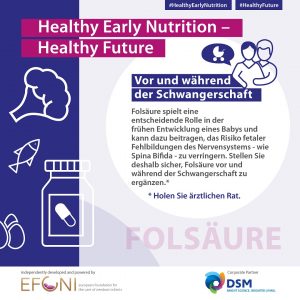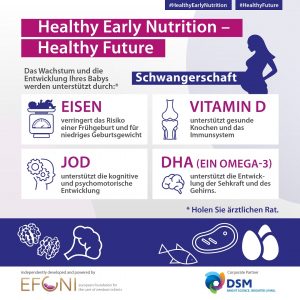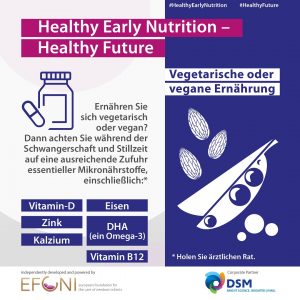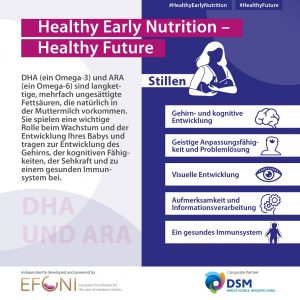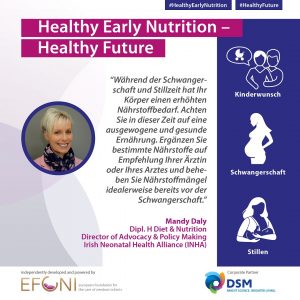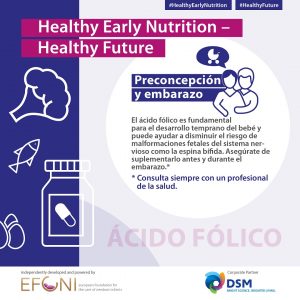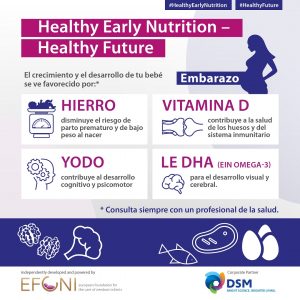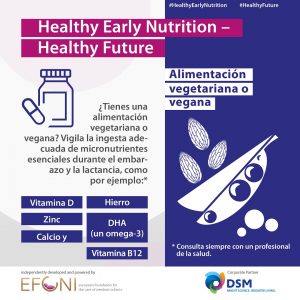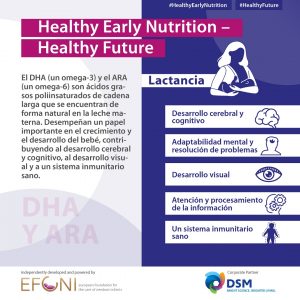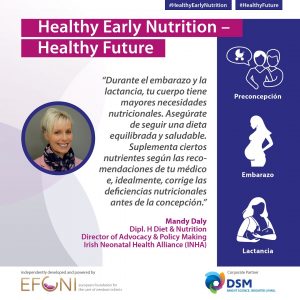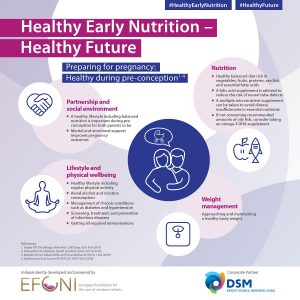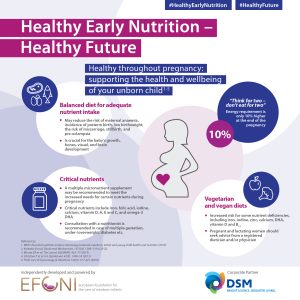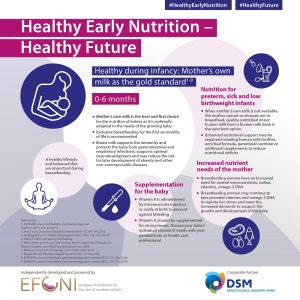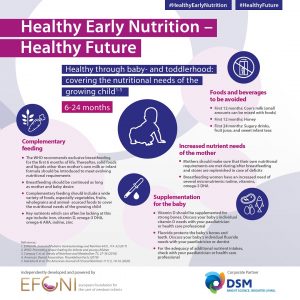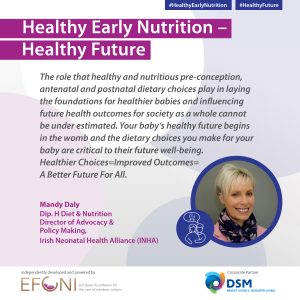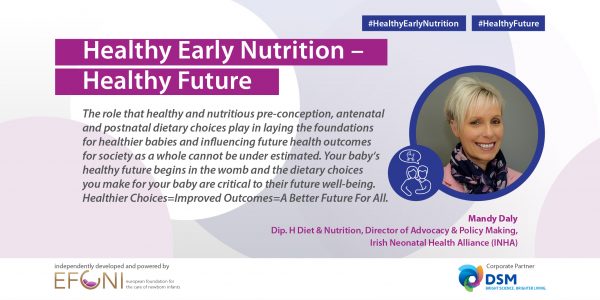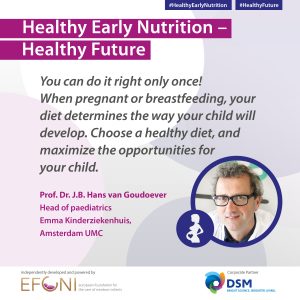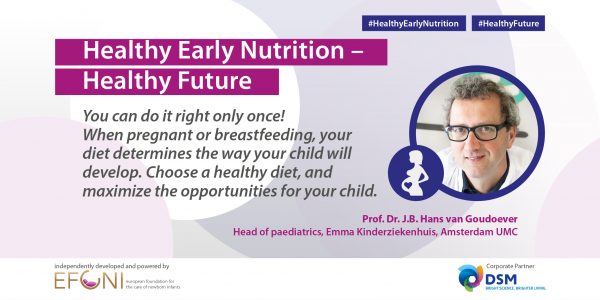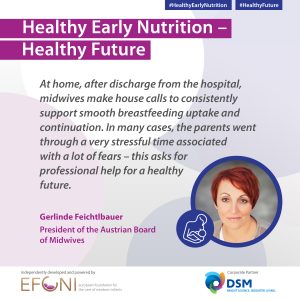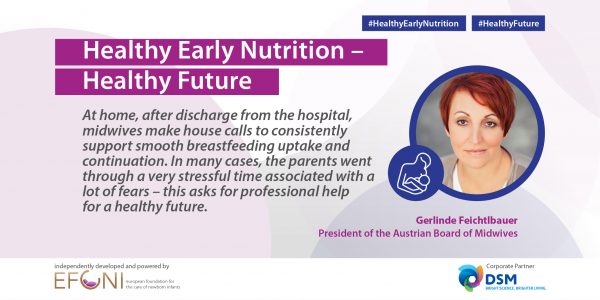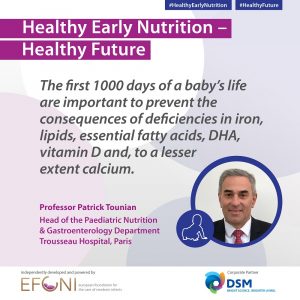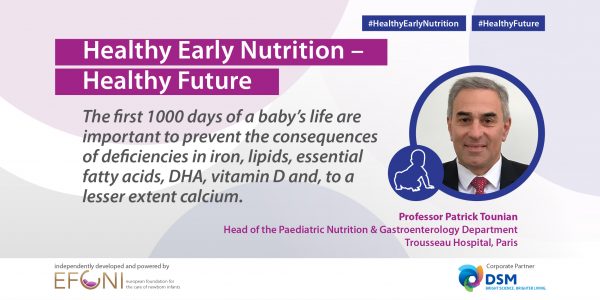Healthy Early Nutrition – Healthy Future
The period between conception and a child’s second birthday is referred to as the first 1000 days of life. This is a unique window of opportunity to support the development, growth and health of the (unborn) baby. It also has short- and long-term health implications for the infant and young child, as well as for pregnant and lactating women. For this reason, a well-balanced diet that includes key nutrients in optimal amounts during this time plays a crucial role in programming future health. Empowering parents-to-be and new parents to make well-informed decisions in terms of healthy early nutrition is important. Health professionals can play a vital part in providing this information. With our campaign “Healthy Early Nutrition – Healthy Future” we focus on the different phases of early nutrition: from pre-conception and through pregnancy, to feeding the baby in the first months of life and during baby-and toddlerhood until the age of 2 years. We also inform about the increased nutritional needs during this time and how supplementation may be recommended to complement a healthy, balanced diet to ensure optimal intakes of essential nutrients. Because the first 1000 days matter – and healthy early nutrition is the first step into a healthy future. For the adequacy of nutritional intakes or general nutrition advice during all phases, we advice pregnant women and women of childbearing age to consult their healthcare professional or paediatrician.
From an expert’s point of view
We spoke to Irene Cetin, Professor of Obstetrics and Gynecology, Department of Biomedical and Clinical Sciences at the University of Milan, Secretary at Società Italiana di Ginecologia e Ostetricia (SIGO) and member of FIGO, about the current recommendations for pregnant and lactating women regarding the supplementation with DHA (docosahexaenoic acid), an omega-3 fatty acid. In our interview, she explains why DHA is so important in preventing (early) preterm birth, what other benefits it bears and how healthcare professionals can assess their patients’ DHA status and potentially help them achieve and maintain a healthy intake.
Our interview with Professor Liona Poon, Head for Maternal Medicine at the Chinese University of Hong Kong & Prince of Wales Hospital and Vice Chair of the FIGO Committee, looks at the impact of pregnancy on long-term health, including the role of diet and lifestyle choices before, during and after pregnancy, and during the lactation period. The expert shared some intriguing insights into the causality of diet and a healthy pregnancy.
Further information
Access the FIGO Nutrition Checklist
Image video on FIGO Nutrition Checklist
Download article “Update on the FIGO Nutrition Checklist” (for clinicians)
Information for pregnant women, women of childbearing age, new mums and parents-to-be
Pre-conception
A healthy lifestyle, including regular physical activity and balanced nutrition, is important for parents-to-be. A diet rich in vegetables, fruits, protein and sea fish is key, especially for the mother-to-be, to get ready for pregnancy and the related increasing nutritional demands. Folic acid – a source of folate – is important for a baby’s very early development. If you plan to or become pregnant, your healthcare prpfessional can provide you with helpful advice on prenatal supplements, including folic acid, to ensure the baby’s proper development and growth. Folic acid also reduces the risk of neural tube defects (NTDs). NTDs are severe birth defects of the brain and spine, such as spina bifida and anencephaly.
During Pregnancy
During pregnancy, the baby is exposed to environmental factors that the mother is exposed to, such as nutrition. A healthy and balanced diet, moderate weight gain, regular moderate physical exercise and a good work-life balance are protective factors and contribute to the healthy development of the baby. Regardless of the specific diet followed by the mother, the optimal intake of crucial nutrients, among others, iron, vitamin D, iodine and DHA (an omega-3), should be minded. If the mother follows a vegetarian or vegan diet, she should be aware that these diets require more attention during pregnancy and breastfeeding. It is advised to seek special medical advice from a healthcare professional, ideally before pregnancy, to remedy any nutrient deficiencies before conception. Regardless of the diet or lifestyle followed, a multiple micronutrient supplement may be recommended to meet the increased needs during pregnancy. Alcohol, nicotine consumption and passive smoking should be avoided.
Infancy: 0-6 months
Mother’s own milk is the best and first choice for the nutrition of babies, and breastfeeding should be initiated immediately after birth. It is recommended to exclusively breastfeed for the first six months of life. Breastfeeding women should ensure their own nutritional needs are being met and maintain a healthy lifestyle and balanced diet during the breastfeeding period. During breastfeeding, the body has increased needs for several nutrients to support the growth and development of the baby, e.g. iron, vitamin D, iodine and DHA (an omega-3). Consultation with a healthcare professional is recommended for personalised nutrition advice. For the baby, vitamin K is essential to prevent bleeding and should be administered by intramuscular injection at birth or orally at birth followed by extra doses afterwards. Supplementation of vitamin D for the baby is important to support the growth and development of strong bones.
Baby-and toddlerhood: 6-24 months
Complementary feeding – the introduction of solid foods and liquids other than breast milk or infant formula – should be initiated from six months, but no later than 7 months of age, while continuing breastfeeding for as long as mother and baby desire. As all babies develop at a different pace, parents should pay attention to developmental signs to know when the baby is ready for solid foods. A wide variety of flavours and foods should be offered, especially vegetables, fruits, whole grains, and animal-source foods to cover the nutritional needs of the growing child. Nutrient-poor foods that contain excessive sugar, fat, or salt, as well as honey and cow’s milk, should be avoided in the first year of life (small amounts of cow’s milk can be mixed with food from six months).
Social media graphics
*Content from 2024 campaign
*Content from 2022 campaign
*Content from 2021 campaign
Healthy Early Nutrition – Healthy Future campaign was independently developed and is powered by EFCNI.
![]()
Corporate partner:
![]()
In collaboration with:
![]()



